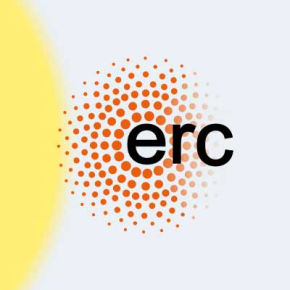
ERC Advanced Grant 2023 : winners hosted by CNRS
The European Research Council (ERC) has just announced the results of the 'ERC Advanced Grant 2023" call for established researchers. The CNRS is the host institution for 15 of the grant-winning projects.
In 2024, the European Research Council (ERC) is funding 255 researchers in Europe through its 'Advanced' grants of a total of €652 million from the Horizon Europe framework programme. These grants enable scientists with national and international recognition to work on innovative, high-risk projects that open up new directions in their discipline or in other fields. These grants are for established researchers who are thus at a higher level of experience than beneficiaries of the 'Starting' (up to €1.5 million, for European project leaders who obtained their PhD between 2 and 7 years ago) and 'Consolidator' (up to €2 million, between 7 and 12 years after the PhD) grants. These are 5-year projects and have a maximum budget of €2.5 million.
In total, approximately 14% of the 1829 applicant projects were funded, in conjunction with universities, research centers, and companies in 20 European countries.
The CNRS is the host institution for 15 of the winning projects which ranks the organisation ahead of the Max Planck Institute (11 projects), the Helmholtz Association (10) and the Weizmann Institute of Science (6). 22 winners also come from joint research units (UMRs) involving the CNRS and its partners. Among the winning projects, 9 are in physics and engineering, 2 in life sciences and 4 in the humanities and social sciences:
The 15 winning projects for which CNRS is the host institution are as follows:
- Mohamed Ali BOUHIFD – FOREVER – Laboratoire magmas et volcans (CNRS / IRD / Université Clermont-Auvergne) (CNRS Earth & Space)
- Véronique BENEI – MOVING – Laboratoire d'anthropologie politique – approches interdisciplinaires et critiques des mondes contemporains (CNRS / EHESS) (CNRS Humanities & Social Sciences)
- Gaëtan CLIQUENNOIS – JUST PEN – Droit et changement social (CNRS / Nantes Université) (CNRS Humanities & Social Sciences)
- Olivier GOSSNER – SInfoNiA – Centre de recherche en économie et statistique (CNRS / École Polytechnique / Groupe des écoles nationales d'économie et statistique) (CNRS Humanities & Social Sciences)
- Robin KAISER – IC4Stars – Institut de physique de Nice (CNRS / Université Côte d'Azur) (CNRS Physics)
- Yann KLINGER – BE_FACT – UMR-Institut de physique du globe de Paris (CNRS / Institut de physique du globe de Paris / Université Paris-Cité) (CNRS Earth & Space)
- Éric LAROSE – CRACK THE ROCK – Institut des sciences de la Terre (CNRS / IRD / Université Grenoble Alpes / Université Savoie Mont-Blanc) (CNRS Earth & Space)
- Purificacion LOPEZ-GARCIA – SYMBEK – Écologie, systématique et évolution (AgroParisTech / CNRS / Université Paris-Saclay) (CNRS Ecology & Environment)
- Marie MANCEAU – PLUMAGE – Centre interdisciplinaire de recherches en biologie (CNRS / Collège de France / Inserm) (CNRS Biology)
- Christian MÜLLER – MCILRaP – Institut de recherche et d'histoire des textes (CNRS) (CNRS Humanities & Social Sciences)
- Gabriel PEYRÉ – WOLF – Département de mathématiques et applications de l'ENS (CNRS / ENS-PSL) (CNRS Mathematics / CNRS Informatics)
- Thierry POINSOT – SAFE-H2 – Institut de mécanique des fluides de Toulouse (CNRS / Toulouse INP / Université Toulouse Paul-Sabatier) (CNRS Engineering)
- Frédéric SAUVAGE – GEMINI – Laboratoire de réactivité et chimie des solides (CNRS / Université de Picardie Jules Verne) (CNRS Chemistry)
- Jérémie SZEFTEL – BlaHSt – Laboratoire Jacques-Louis Lions (CNRS / Sorbonne Université / Université Paris-Cité) (CNRS Mathematics)
- Joris VAN DER HOEVEN – ODELIX – Laboratoire d'informatique de l'École Polytechnique (CNRS / École Polytechnique) (CNRS Informatics)


